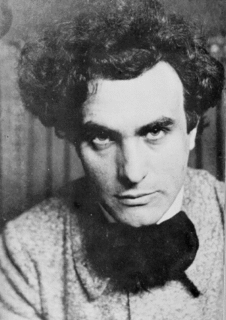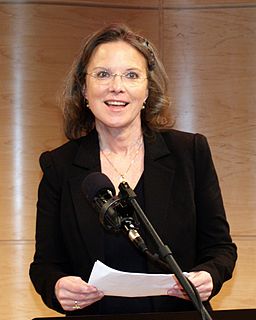Цитата Эвелин Андерхилл
Но так много христиан подобны глухим на концерте. Они внимательно изучают программу, верят каждому сделанному в ней заявлению, уважительно отзываются о качестве музыки, но на самом деле слышат только фразу время от времени. Поэтому они не имеют никакого представления о той могучей симфонии, которая наполняет вселенную, в которую наши жизни призваны внести свой крошечный вклад и которая является самовыражением Вечного Бога.
Темы цитат
Снова
верьте
внимательно.
Христиане.
Вклад
в концерт. Глухие,
глухие люди.
Предназначено
для
вечности.
Каждое
выражение
наполняет
Бога
.
Слышит ,
как жизни
.
Создают
множество
Могучих
музыкальных
идей.
Теперь
только
наша
наша жизнь.
Люди.
Фраза
.
Качество
программы
. Действительно
уважительно
.
Самовыражение .
Связанные цитаты
Мой голос в сочетании с арфой, которую я, кстати, использую, потому что играю на ней всю свою жизнь, а не для того, чтобы делать какие-то заявления об арфе, каким-то образом... окрашивали интерпретации музыки людьми и спроецировали идею. детского или сказочного качества или невинности. Что иногда мешает людям слушать песни так, как я бы хотел, чтобы их слушали.
То, что мы называем музыкой на нашем повседневном языке, есть лишь миниатюра, которую наш разум уловил из той музыки или гармонии всей вселенной, которая действует за всем и которая является источником и началом природы. Именно поэтому мудрецы всех веков считали музыку священным искусством. Ибо в музыке видящий может увидеть картину всей вселенной; и мудрый может интерпретировать тайну и природу работы всей вселенной в сфере музыки.
Наша музыкальная азбука бедна и нелогична. Музыка, которая должна пульсировать жизнью, нуждается в новых средствах выражения, и только наука может наполнить ее юношеской энергией. Почему, итальянские футуристы, вы рабски воспроизвели только то, что обыденно и скучно в суете нашей повседневной жизни. Я мечтаю об инструментах, послушных моей мысли, которые своим вкладом в целый новый мир неожиданных звуков удовлетворят требования моего внутреннего ритма.
То, что должно отличать страдания верующих от неверующих, — это уверенность в том, что наши страдания находятся под контролем всемогущего и вселюбящего Бога. Наши страдания имеют смысл и цель в Божьем вечном плане, и Он приносит или позволяет прийти в нашу жизнь только тому, что предназначено для Его славы и нашего блага.
Для Кальвина творение отражает своего Творца в каждой точке. Образ за образами мелькали перед нашими глазами, когда Кальвин пытался передать разнообразие способов, которыми творение свидетельствует о своем Творце: оно похоже на видимое одеяние, которое невидимый Бог надевает, чтобы дать о себе знать; это как книга, в которой написано имя Творца как ее автора; это похоже на театр, в котором слава Божья выставляется на всеобщее обозрение; оно подобно зеркалу, в котором отражаются дела и мудрость Божия.
Было бы неплохо, если бы мы, подобно Белой Королеве, тренировались каждое утро перед завтраком верить в шесть невозможных вещей, потому что мы призваны верить в то, что для многих людей невозможно. Вместо того чтобы радоваться этому славному «невозможному», придающему смысл и достоинство нашей жизни, мы пытаемся приручить Бога, сделать Его могущественные действия понятными для нашего ограниченного разума.
Качество света, с помощью которого мы внимательно изучаем нашу жизнь, имеет непосредственное отношение к продукту, которым мы живем, и к изменениям, которые мы надеемся произвести в этих жизнях. Именно в этом свете мы формируем те идеи, с помощью которых мы преследуем нашу магию и реализуем ее. Это поэзия как озарение, ибо именно через поэзию мы даем имена тем идеям, которые до стихотворения безымянны и бесформенны — вот-вот родятся, но уже прочувствованы.
[Руководитель Radio Three] попал в ловушку музыкального директора колледжа и профессора философии. Эти двое были заняты объяснением измученному мужчине, что фраза «слишком много Моцарта», при любом разумном определении этих трех слов, является внутренне противоречивым выражением, и что любое предложение, содержащее такую фразу, таким образом, становится бессмысленным и бессмысленным. следовательно, не может быть выдвинут в качестве аргумента в пользу какой-либо данной стратегии планирования программ.
Я делаю то, что, как я верю, делал Господь, а именно хожу в любви ко всему человечеству, чего я не вижу у многих христиан. Христиане могут быть настолько осуждающими, что это может оттолкнуть людей, которые думают об обращении. Честно говоря, меня немного смущает, когда я слышу, как христиане критикуют других. Я должен бороться с разочарованием, потому что я не хочу быть связанным с людьми, которые так нетерпимы к большей части человечества. Бог любит нас всех. Он действительно знает. И я хочу ходить в любви с людьми.
В мире случайностей есть лучшее и худшее? Мы отдаемся в объятия незнакомца или отдаемся волнам; на мгновение наша бдительность ослабевает; мы спим; и когда мы просыпаемся, мы потеряли направление нашей жизни. Что это за моргания век, от которых единственная защита — вечное и бесчеловечное бодрствование? Не могут ли они быть трещинами и щелями, через которые другой голос, другие голоса говорят в нашей жизни? По какому праву мы затыкаем им уши? (Сьюзен Бартон)
Мы, национал-социалисты, должны непоколебимо придерживаться нашей цели во внешней политике, а именно: обеспечить немецкому народу землю и почву, на которые он имеет право на этой земле. И это единственное действие, которое перед Богом и немецким потомством сделало бы оправданной любую кровавую жертву: перед Богом, поскольку мы поставлены на эту землю с миссией вечной борьбы за хлеб насущный.




































